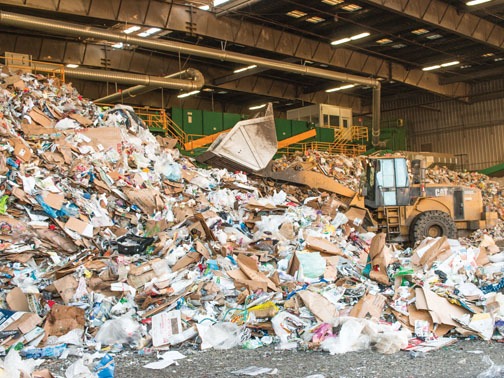U.S. Faces Waste Recycling Challenges
Jan 29, 2019
Changing Markets in China and National Sword Policy

By now, most everyone in the solid waste industry and many outside the industry are familiar with China’s National Sword Policy, which became effective in February 2018. The bans, restrictions and tougher contamination standards are an effort by China to improve air quality, reduce pollution and prevent illegal waste smuggling.
In the short-term, National Sword and other policy changes are creating major challenges for U.S. recyclers to find new markets or reduce contamination in their materials (since 1992, China has imported 106 million metric tons of plastic waste, or 45% of all plastic waste). In some areas, recyclable materials are ending up in landfills, and municipalities are canceling curbside recycling programs.
Over the long-term, it will change the way the U.S. deals with its waste, and hopefully create opportunities for innovation and the development of new domestic markets. A new international organization, the Global Alliance to End Plastic Waste, was established earlier this year to develop solutions to end plastic waste in the environment, with a focus on the ocean.
The non‑profit group is an alliance of companies from the plastics and consumer goods industries throughout North and South America, Europe, Asia, Southeast Asia, Africa and the Middle East. The group has committed more than $1 billion with a goal of investing $1.5 billion over five years to manage plastic waste and develop uses for used plastics through working to support a circular economy
More details…
National Sword Policy: The policy bans various plastic, paper and solid waste, including plastics such as PET (polyethylene terephthalate), PE (polyethylene), PVC (polyvinyl chloride), and PS (polystyrene). It also sets a much tougher standard on contamination in scrap plastic, zorba (a mix of shredded and pre-treated non-ferrous scrap metals) and other metals allowed in a shipment increasing from the limit from 90 to 95 percent purity to 99.5 percent.
Additionally, in late 2018 China announced plans to restrict imports of eight different scrap categories including aluminum, steel and copper by July 1, 2019. It’s unclear what these recent scrap restrictions will mean as China is still in the process of creating new quality standards. These materials could end up being classified as regular goods, not solid waste, which would allow for their continued import.
In the News:
- New Global Alliance to End Plastic Waste Has Launched (Waste 360, January 2019)
- EPA Recycling Summit highlights lack of national responsibility (Waste Dive/November 2018)
- US Recyclers Begin Road to Recovery After China Bans Recyclables (The Recycling Partnership, October 2018)
- Plastic Recycling Is Broken. Here’s How to Fix It. (National Geographic, June 2018)
- Rethinking the Way We Manage, Repurpose (Waste 360, May 2018)